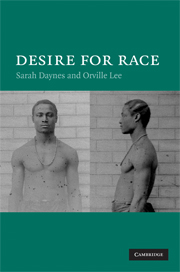Book contents
- Frontmatter
- Contents
- Acknowledgements
- Introduction
- 1 American sociology
- 2 Marxism
- 3 British social anthropology
- 4 British cultural studies
- 5 Intermediate reflections on essentialism
- 6 Belief and social action
- 7 Theorizing the racial ensemble
- 8 The politics of memory and race
- 9 Desire
- Conclusion
- Bibliography
- Index
1 - American sociology
Published online by Cambridge University Press: 22 September 2009
- Frontmatter
- Contents
- Acknowledgements
- Introduction
- 1 American sociology
- 2 Marxism
- 3 British social anthropology
- 4 British cultural studies
- 5 Intermediate reflections on essentialism
- 6 Belief and social action
- 7 Theorizing the racial ensemble
- 8 The politics of memory and race
- 9 Desire
- Conclusion
- Bibliography
- Index
Summary
We want to look at the thinkers of a given period as representatives of different styles of thought. We want to describe their different ways of looking at things as if they were reflecting the changing outlook of their groups; and by this method we hope to show both the inner unity of a style of thought and the slight variations and modifications which the conceptual apparatus of the whole group must undergo as the group itself shifts its position in society.
(Mannheim 1971: 262–263)The development of the sociology of race in America did not occur in a vacuum. It was shaped from the beginning by the pre-existing racial science of the nineteenth century, which is frequently referred to as “scientific racism.” Opposition to scientific racism and its emphasis on biology and nature has set the fundamental terms on which “race” has been queried over the last one hundred years in American sociology. In epistemological terms, this opposition is simple enough: it involves an exchange of objects, biology (or nature) for society. Yet, as an example that confirms the psychoanalytic law of the return of the repressed, biological (i.e., essentialist) notions have invariably found their way back into putatively sociological conceptions of race. This chapter traces both the exchange of objects in the study of race and the return of a repressed racial nature in sociological arguments about race that form a distinctive style of thought.
- Type
- Chapter
- Information
- Desire for Race , pp. 21 - 40Publisher: Cambridge University PressPrint publication year: 2008

